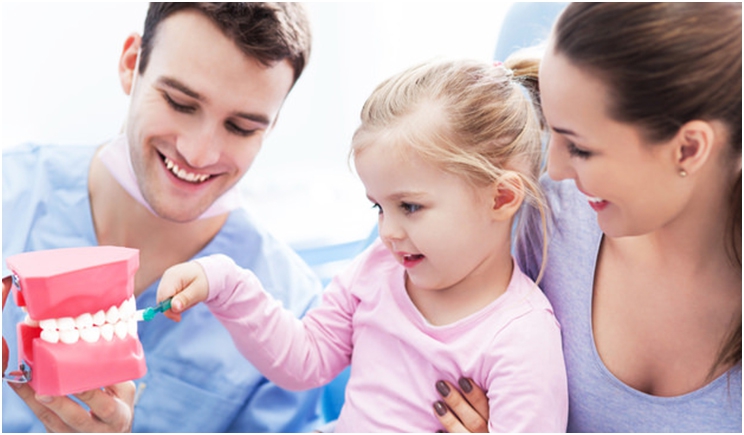
February is National Children’s Dental Health Month. Although it is an important opportunity to educate our patients and other people, children’s oral health is something that should be prioritized year-round.
It is particularly important this year, as one study in the Journal of the American Dental Association shows that dental care is the top unmet health need for children during the COVID-19 pandemic. Research also shows that children with poor oral health miss more school and receive lower grades than children who don’t, and dental caries are one the most prevalent chronic conditions in children.
Whether it is in my day-to-day work as a practicing hygienist or as public health advocate and member of the Georgia Board of Dentistry, I feel strongly about doing my part to educate others about the importance of proper home care and regular dental visits.
How Oral Health Impacts Overall Health
We know that oral health is linked to many aspects of physical health. In adults, oral health can be connected to various chronic conditions, including heart disease, diabetes, and even Alzheimer’s disease.
In children, chronically poor oral health can also be linked to, or indicative of, additional health challenges including impaired speech, inability to concentrate, difficulty sleeping, and poor diet. As hygienists, it our responsibility to educate parents and children about good oral hygiene habits that can create a positive impact throughout the entire body.
Challenges to Children’s Oral Health
There are several challenges to broadly improving children’s oral health. Primarily, for better or worse, children receive oral healthcare at the discretion of their parents. From the time children are born, parents play a major role in determining their oral health future.
Many parents are not aware, but it is imperative for babies to be seen by a dental professional when they get their first tooth so their guardians can learn how to care for their teeth and prevent decay and baby bottle caries.
As children age, some parents are diligent about taking them to regular dental appointments and teaching them about good dental hygiene at home, while others are not. According to the Centers for Disease Control and Prevention, about one in five children aged 5 to 11 have at least one untreated decayed tooth.
Another major challenge is the inequity in access to quality dental care for low-income families, many of whom are unable to get regular dental care. Data shows that children aged 5 to 19 from low-income families are more than twice as likely to have cavities, compared to children from higher-income households.
While public health measures including water fluoridation and school dental programs have proven highly effective at preventing dental decay, many of these resources are not accessible to the most vulnerable children and communities.
What We Can Do to Support Children’s Oral Health
As dentists and hygienists, the most important thing we can do to support children’s oral health is to educate our patients and communities on the basics, including the importance of brushing two times a day, flossing, regular trips to the dentist, and fluoridated water as part our daily regimens. A little bit of care can go a long way toward preventing dental decay.
While the information that we share is important, the relationships we build are also critical to improving children’s oral health. Whether we are seeing regular patients or new faces in our chairs, making patients feel comfortable with us and their treatment can have a big impact on instilling good oral health habits.
I would also encourage dental organizations to consider what they can do in their own communities, such as setting up presentations (or more likely Zooms) with their local school systems to review good home care and help educate children on the importance of good oral health.
I strongly believe in our responsibility to serve as role models in our offices, communities, and beyond and am proud of the opportunity to play a small part in improving the health of generations to come.
Ms. Mattingly is the vice president of hygiene operations at Sage Dental, responsible for overseeing operations and managing a team of more than a hundred hygienists across its 65 practices. She is dedicated to advancing the use of innovative technology in the dental field, including artificial intelligence and teledentistry. Mattingly also is the past president of the Georgia Dental Hygienists Association and a past delegate for the American Dental Hygiene Association.
Related Articles
Mattingly Named to Georgia Board of Dentistry
Dental Hygienists Need to Keep Up With Changing Technology
Pediatric Dentistry Faces the Ultimate Challenge in COVID-19











